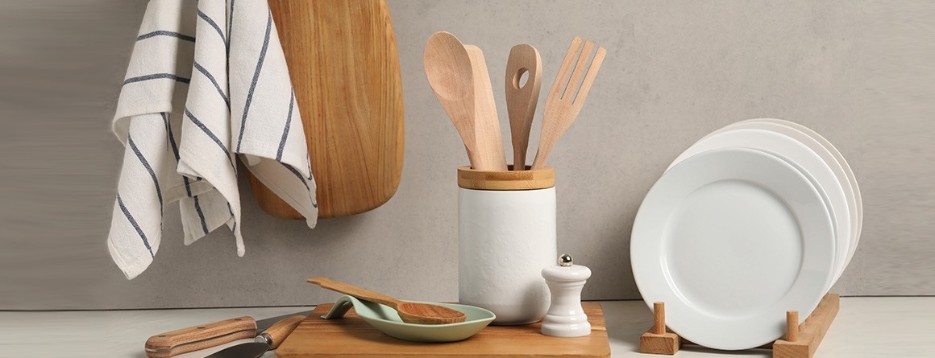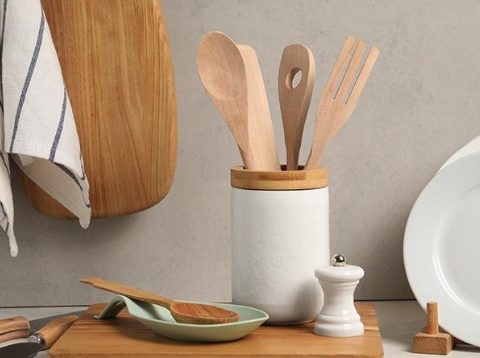The Importance of Non-Toxic Materials in Kitchen Utensils
Thursday, October 17, 2024
When you cook at home, you preserve culinary traditions and care for your loved ones. However, if you delight your family with flavorful dishes, it’s also essential to be aware of the materials your cookware and utensils are made from. Non-toxic materials protect health and contribute to a safe, sustainable environment. We’ll guide you to the best options below!
How to Choose Non-Toxic Kitchen Utensils
You’ve probably noticed the wide variety of kitchen tools on the market. But have you ever wondered how healthy your cookware is and how to choose the right ones? The abundance of models can be overwhelming, but with proper research, selecting the best non-toxic materials becomes easy.
First, avoid utensils that release dangerous chemicals at high temperatures, such as certain plastics. Instead, opt for non-toxic materials like stainless steel, glass, ceramic, and food-grade aluminum.
Always read labels and product descriptions to ensure they’re BPA- and phthalate-free. Look for safety certifications and “non-toxic” marks. Investing in quality utensils, though pricier initially, pays off in health benefits and long-term durability.
The Safest, Recommended Non-Toxic Materials
Each material offers unique advantages to enhance your cooking experience. Here are your options:
Stainless Steel
Stainless steel utensils are among the safest and most durable choices. They don’t react with food, release chemicals, and resist corrosion. Ideal for pans, pots, and cutlery, stainless steel distributes heat evenly and is easy to clean.
Glass
Glass cookware is another excellent choice. It doesn’t react chemically with food, absorb odors, or leach substances during cooking. Glass is perfect for cooking, storing, and serving. It’s dishwasher-safe and fully recyclable, making it a sustainable option.
Ceramic
Ceramic cookware is known for safe use and uniform heat distribution. Perfect for baking dishes and casseroles, ceramic doesn’t leach chemicals and remains durable over time. Plus, it adds a rustic, aesthetic charm to your kitchen.
Food-Grade Aluminum
Food-grade aluminum is lightweight and an excellent heat conductor. Ensure it’s anodized or has a protective coating to prevent chemical reactions with food. Anodized aluminum is safe and long-lasting, used in various cookware.
Care & Maintenance Tips for Non-Toxic Utensils
To keep your non-toxic utensils in top shape and extend their life, follow these tips:
- Use mild detergents and non-abrasive sponges to avoid scratching. Stainless steel, wood, glass, and ceramic all benefit from gentle cleaning.
- Avoid sudden temperature changes—don’t run hot pots under cold water to prevent warping or cracking.
- Store utensils in a dry, ventilated area to prevent corrosion and mold. Use organizers to avoid scratches.
- Use appropriate utensils for each surface—wood or silicone tools on nonstick pans to avoid damage; avoid metal tools on coated surfaces.
Whether you choose stainless steel, glass, ceramic, or food-grade aluminum, each material offers unique benefits for safety and efficiency in the kitchen. By selecting these materials and maintaining your cookware properly, cooking at home becomes a safe, sustainable—and enjoyable—activity!


